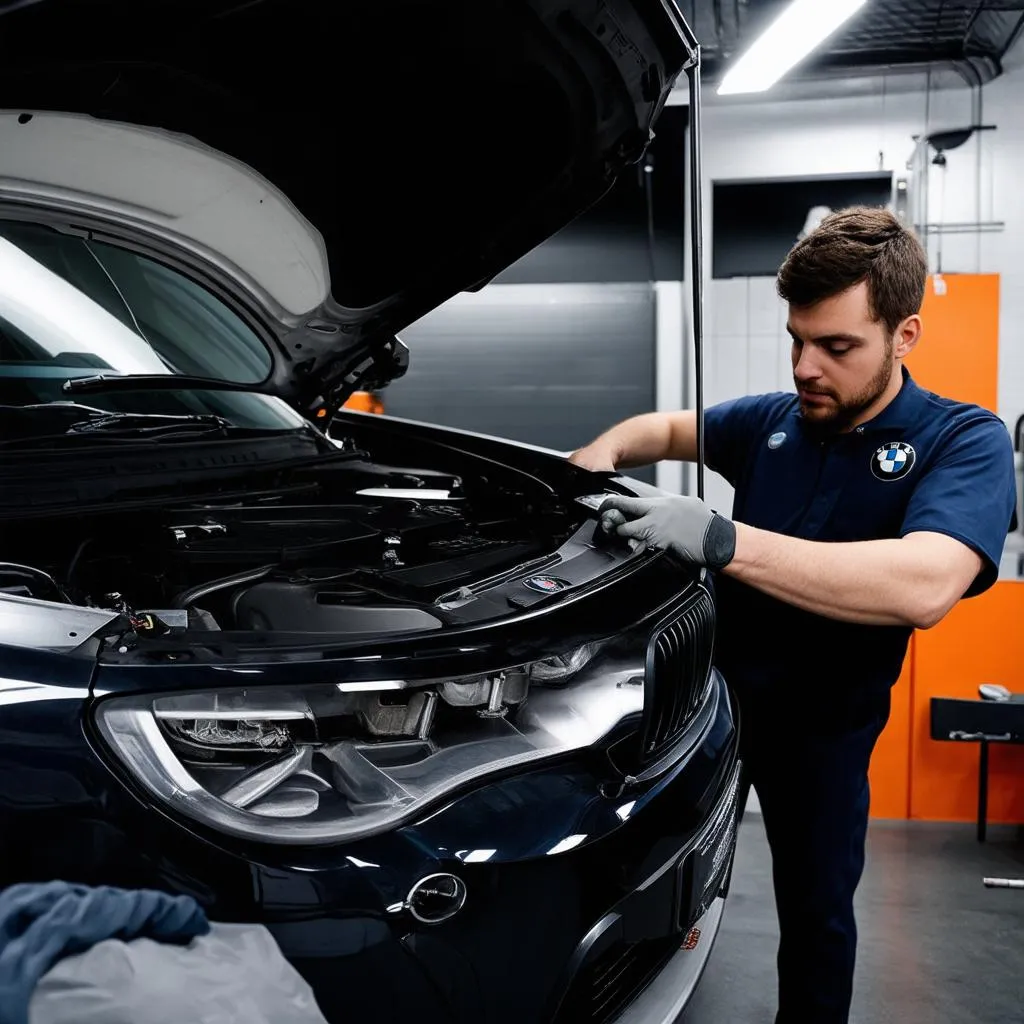BMW X5 Years To Avoid: What Years Should You Skip?
Have you ever dreamt of owning a BMW X5, a luxurious and powerful SUV that turns heads wherever it goes? But, like many car enthusiasts, you’re probably wondering if there are certain years to avoid when shopping for a pre-owned X5.
Let’s dive deep into the world of BMW X5s and discover the years you might want to steer clear of. This information will help you make a smart decision and avoid potential headaches down the line.
Why You Should Care About BMW X5 Years To Avoid
Choosing the right year for your BMW X5 is crucial for several reasons:
1. Reliability and Durability: Just like any other car, BMW X5s have their fair share of quirks and potential issues. Some model years have a history of more frequent problems than others.
2. Maintenance Costs: A poorly chosen year could result in hefty repair bills, especially as these vehicles get older.
3. Resale Value: If you plan on selling your X5 in the future, opting for a model year with a strong reputation for reliability can significantly impact its resale value.
Understanding the Common Issues
The Early Years (2000 – 2006): These first-generation X5s were known for their robust build quality, but some models came with early issues, such as:
- Transmission Problems: Transmission failures were a recurring issue for several early X5 models. This was particularly prevalent in models with the V8 engine.
- Electrical Issues: The electrical system was not without its faults. A common problem involved malfunctions in the window regulators, door locks, and other electrical components.
- Suspension Issues: The suspension system could experience premature wear and tear, resulting in squeaks, rattles, and even excessive tire wear.
Mid-Life Crisis (2007-2013): While the second-generation X5s saw improvements in many areas, they weren’t entirely immune to issues.
- Fuel Injection Problems: Fuel injection issues were a common culprit, resulting in engine performance problems.
- Water Pump Failures: Water pump failures, a recurring theme in many BMW models, could lead to engine overheating and potential damage.
- Head Gasket Leaks: Leaky head gaskets could result in coolant leaks, leading to engine damage.
The Modern Age (2014 – Present):
- Engine and Transmission Issues: Despite the significant technological advancements in the X5, engine and transmission problems can still occur.
- Electrical Issues: Electrical gremlins, particularly in complex infotainment systems, can be frustrating to diagnose and repair.
Which Years To Avoid?
Here’s a breakdown of BMW X5 model years to be cautious about, based on common complaints and reports from owners and mechanics:
- 2001 BMW X5: The 2001 model year is notorious for its transmission issues.
- 2004 BMW X5: Similar to the 2001, the 2004 X5 is also known for its problematic transmission.
- 2007 BMW X5: The 2007 X5 has been reported to have a higher than average number of fuel injection problems.
- 2010 BMW X5: The 2010 X5 is often associated with water pump failures, leading to engine overheating.
- 2014 BMW X5: This model year was plagued by a number of early issues with the engine and transmission.
Tips for Finding a Reliable BMW X5
- Thorough Pre-Purchase Inspection: Always have a pre-purchase inspection performed by a reputable mechanic.
- Check the Vehicle History Report: A Carfax or AutoCheck report can reveal any accidents, maintenance records, and even potential problems.
- Consider Extended Warranty: If you decide to purchase an older X5, consider purchasing an extended warranty for peace of mind.
- Research Common Issues: Familiarize yourself with the common problems associated with different model years before making your purchase.
Should You Still Consider a BMW X5?
Even with its potential for problems, the BMW X5 remains a sought-after vehicle for a reason. It offers a combination of performance, luxury, and versatility that few other SUVs can match.
Here’s the bottom line:
If you’re looking for a reliable and trouble-free driving experience, perhaps a different vehicle is a better choice. However, if you’re willing to do your research, carefully consider a pre-purchase inspection, and potentially accept some risk, then the BMW X5 can still be a fantastic option.
Frequently Asked Questions (FAQs)
What is the best year for a BMW X5?
Many experts and owners consider the 2016, 2017, and 2018 model years to be the most reliable and trouble-free.
What are the common signs of a failing BMW X5?
Common signs include engine misfires, rough idling, excessive smoke from the exhaust, transmission slipping, and unusual noises.
Are BMW X5s expensive to maintain?
Yes, BMWs are generally considered to be more expensive to maintain than other brands.
What are the pros and cons of owning a BMW X5?
Pros:
- Powerful and sporty handling
- Luxurious interior and exterior
- Premium brand reputation
- Versatile and spacious
Cons:
- Potential for expensive repairs
- Complex electrical systems
- Can be fuel-thirsty
Where can I find a reputable BMW mechanic?
You can ask for recommendations from friends, family, or online forums, and check online directories for mechanics specializing in BMWs.
 bmw x5 maintenance cost
bmw x5 maintenance cost
Want to Learn More About BMW X5s?
We have a ton of resources on our website, including detailed reviews, maintenance tips, and troubleshooting guides.
- Check out our BMW X5 2019 Black review
- Learn about the BMW X5 tank capacity
- Discover the beauty of a Grand Blanc BMW
Need Help with Diagnostics or Repairs?
Our team of experts can assist you with your BMW X5 needs.
Contact us on Whatsapp: +84767531508
We’re here to help you keep your BMW X5 running smoothly!
